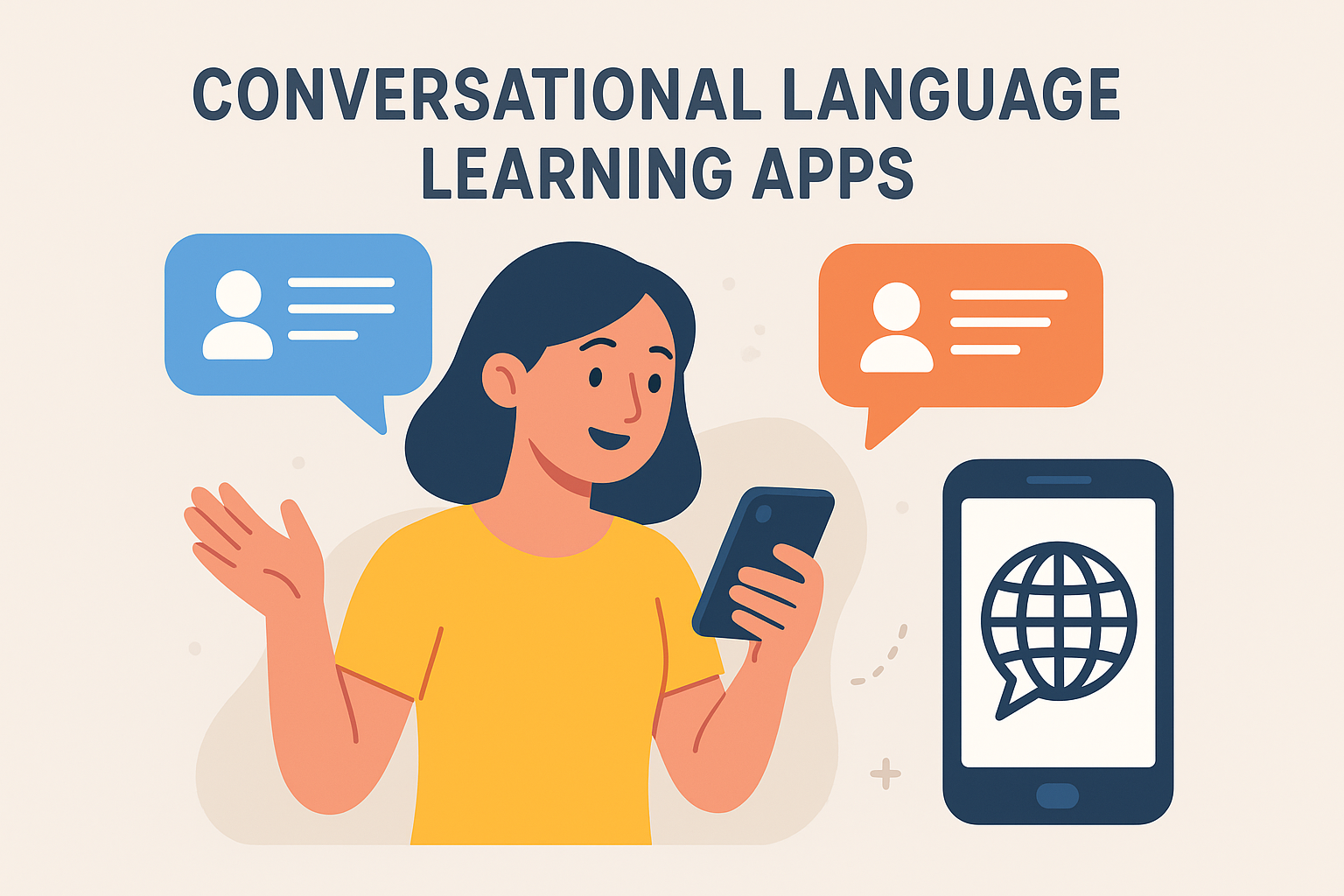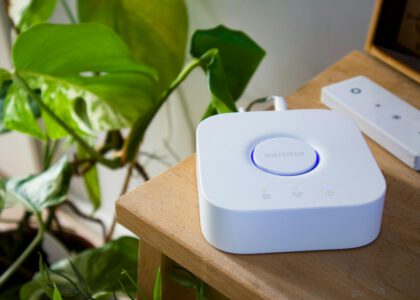If you’ve ever studied a language and thought, “I can read this perfectly, but I completely freeze when I try to speak,” you’re experiencing one of the most common challenges in language learning. You’re definitely not alone in this struggle. The gap between passive comprehension and active speaking ability affects millions of learners worldwide, often leading to frustration and abandoned language goals.
The fastest and most effective way to bridge this gap is through regular practice of real conversations, frequently, safely, and with constructive feedback that helps you grow systematically. This is exactly the sweet spot that a well-designed conversational language learning app occupies. In this comprehensive guide, we’ll break down why conversation-first learning works so remarkably well, explore the science behind it, and show you how abblino makes this approach practical, motivating, and surprisingly enjoyable.
Whether you’re a complete beginner building your first foundations, an intermediate learner breaking through plateaus, or an advanced speaker fine-tuning cultural nuances and professional communication, conversational practice is the bridge between “I understand the grammatical rule” and “I can actually use it naturally in real situations.” Let’s explore how this transformation happens and why it’s so effective.
Table of Contents
ToggleWhy Choose a Conversational Language Learning App? The Science and Benefits
1) You Learn to Speak by Actually Speaking: Building Neural Pathways Through Practice
This might seem obvious, but it’s worth emphasizing: conversation builds the exact cognitive and muscular patterns you use in real-world communication. When you engage in conversation, you’re training multiple systems simultaneously, word retrieval, sentence construction, pronunciation, listening comprehension, and real-time response generation.
With abblino, you practice natural dialogues at your own comfortable pace, choosing between typing or speaking aloud, so you can experiment, make mistakes, learn from them, and try again without any social pressure or embarrassment. This creates a low-stress environment where your brain can focus on language production rather than anxiety management.
Over time, this practice builds what linguists call “automaticity”, the ability for words, phrases, and grammatical patterns to surface quickly and naturally in your mind. This automaticity is what separates fluent speakers from those who can only construct sentences slowly and deliberately. The more you practice retrieving and using language in conversational contexts, the faster and more confident you become.
Research in cognitive psychology shows that procedural memory (the “how” of language use) develops differently from declarative memory (the “what” of language facts). Conversational practice specifically targets procedural memory, helping you internalize patterns so deeply that they become second nature.
2) Immediate, Contextual Feedback Accelerates Learning and Retention
The most effective corrections and improvements happen right after you use a phrase or construction, while the context is still fresh in your mind. This immediate feedback loop is one of the key advantages of conversational learning over traditional classroom methods, where feedback might come hours or days after the original attempt.
abblino provides helpful corrections and suggestions seamlessly within the flow of conversation, so you learn not just what’s correct, but also alternatives, appropriate register (formal vs. informal), and more natural phrasing, all without breaking your conversational momentum or making you feel self-conscious.
This approach helps you understand not just grammar rules, but also pragmatics, the subtle art of saying the right thing in the right way at the right time. You learn when to use “Could you please…” versus “Can you…” versus “Would you mind…?” based on context, relationship, and cultural expectations.
The feedback in conversational apps is also personalized to your specific mistakes and patterns, unlike generic grammar exercises that might address errors you never make while missing the ones you consistently struggle with.
3) Personalized Learning Paths Keep You Engaged and Motivated
Every language learner is unique, your goals, interests, learning style, available time, and cultural background all influence how you best acquire language skills. Traditional one-size-fits-all approaches often fail to account for this diversity, leading to disengagement and abandonment.
A sophisticated conversational app adapts to your individual needs: you can choose topics that genuinely interest you (travel adventures, business negotiations, daily life interactions, cultural discussions), set your appropriate proficiency level, and practice scenarios that directly match your real-world needs and goals.
abblino keeps sessions focused and immediately practical, ensuring that every minute of practice helps you communicate more effectively in situations you actually encounter. This relevance factor dramatically improves motivation and retention, when you can immediately use what you’ve learned, you’re much more likely to remember it and continue practicing.
The app also tracks your progress across different skills and topics, helping you identify strengths to build upon and weaknesses that need attention. This data-driven approach ensures you’re always working on the most impactful areas for your personal language journey.
4) Contextual Learning Makes Language Stick in Long-Term Memory
Words and grammar rules learned in isolation, through vocabulary lists or grammar drills, tend to fade quickly from memory because they lack meaningful connections. However, words and structures learned within rich contextual frameworks, embedded in stories, scenarios, and purposeful communication, create multiple memory anchors that make recall much more reliable.
In conversational practice, you encounter vocabulary and grammar patterns within meaningful, complete sentences and realistic situations. abblino’s scenario-based practice sessions, such as ordering food at a restaurant, handling small talk at a networking event, discussing work projects with colleagues, or navigating travel complications, create memorable, immediately reusable language chunks that transfer directly to real-world situations.
This contextual approach also helps you understand connotation, cultural usage, and situational appropriateness in ways that traditional study methods simply cannot provide. You learn not just what words mean, but when and how native speakers actually use them.
5) Consistent Bite-Sized Practice Creates Compound Progress
One of the biggest barriers to language learning success is the misconception that you need long, intensive study sessions to make meaningful progress. Research in learning science consistently shows that frequent, shorter practice sessions are far more effective than sporadic, lengthy cramming sessions.
You don’t need to dedicate an hour every day, just 10-15 minutes of focused conversational practice compounds quickly over time. This is partly due to the “spacing effect” in memory formation, where information encountered repeatedly over distributed time periods creates stronger, more durable memories than massed practice.
abblino is specifically designed for quick, purposeful sessions that fit into busy schedules, helping you build a sustainable daily streak and maintain consistent progress, even on your most hectic days. Whether you’re waiting for coffee, commuting on public transport, or winding down before bed, you can engage in meaningful language practice.
This consistency is crucial for language acquisition because your brain needs regular exposure and practice to maintain and strengthen neural pathways associated with your new language. Regular short sessions prevent the “forgetting curve” from erasing your progress between study periods.
6) Safe Practice Environment Builds Confidence Without Social Anxiety
Real-world conversations, especially in the early stages of language learning, can feel intimidating and overwhelming. The fear of making mistakes, appearing foolish, or not being understood can create significant anxiety that actually inhibits learning and performance.
A well-designed conversational app provides a completely safe, judgment-free environment where you can experiment freely, ask questions without embarrassment, repeat difficult sections as many times as needed, and gradually build confidence at your own pace. abblino meets you exactly where you are in your language journey and gently nudges you forward without pressure or criticism.
This psychological safety is crucial for language acquisition because anxiety and stress actually interfere with the brain processes involved in learning and memory formation. When you feel relaxed and confident, your brain is much more capable of acquiring new patterns and retrieving existing knowledge.
As your confidence grows in this safe environment, you’ll find yourself naturally more willing to take risks and engage in real-world conversations, the ultimate goal of language learning.
What Makes Abblino an Exceptional Choice for Conversation-First Learning
Advanced Conversation-First Architecture
abblino is built around the principle that conversation should be the primary vehicle for language learning, not an afterthought added to traditional methods. Every feature is designed to support natural dialogue that mirrors authentic everyday situations, from casual social interactions to professional communications.
Intelligent Adaptive Scaffolding
The app provides precisely the right amount of support to keep you progressing without feeling overwhelmed or underwhelmed. This includes contextual hints when you’re stuck, alternative phrasings when you want variety, and level-appropriate input that challenges you without causing frustration. The scaffolding gradually decreases as your competence increases, promoting independence.
Sophisticated Error Correction That Teaches
Rather than simply marking mistakes as wrong, abblino provides gentle, educational feedback that helps you understand not just what to say, but why certain constructions work better than others. You learn about structure, tone, register, and natural phrasing in context, making the corrections more memorable and applicable.
Comprehensive Topic-Driven Practice
Choose from an extensive library of themes that match your specific goals and interests: travel scenarios, workplace communication, social interactions, academic discussions, cultural topics, and many more. This ensures your learning time is immediately useful and relevant to your actual communication needs.
Flexible, User-Friendly Format
Designed for real-world busy schedules, abblino offers short, focused sessions that you can complete anywhere, anytime. No extensive planning or preparation required, just open the app and start conversing. Sessions can be as brief as 5 minutes or as extended as you prefer.
Progress Tracking and Analytics
Monitor your improvement across different skills, topics, and conversation types. The app identifies patterns in your learning, highlights areas of strength and growth opportunities, and suggests personalized practice focuses based on your individual progress data.
Pro Tip: Pair your daily abblino conversations with a simple review routine, perhaps maintaining a personal glossary of favorite new phrases using Anki for spaced repetition, reviewing challenging conversations, or conducting a weekly “confidence check” where you replay previous scenarios to see your improvement. This reinforcement helps lock in your gains and builds momentum.
Who Benefits Most From Conversational Learning Apps?
Complete Beginners Seeking Early Confidence
Starting with conversation might seem counterintuitive, but beginners actually benefit enormously from early speaking practice. You can start with very simple survival phrases, basic greetings, and essential expressions, then expand naturally as your comfort grows. This approach prevents the common problem of becoming a “silent learner” who understands everything but never develops speaking skills.
Intermediate Learners Breaking Through Plateaus
If you’ve reached the frustrating intermediate plateau where you can understand most things but struggle to express yourself fluently, conversational practice is often the key to breakthrough. It pushes you beyond passive understanding into active, spontaneous language production, which is where true fluency develops.
Professionals Preparing for International Communication
Whether you’re preparing for job interviews, client meetings, presentations, or collaborative projects with international colleagues, conversational apps let you rehearse realistic scenarios and receive feedback on both content and delivery style. This preparation builds confidence and competence for high-stakes communication situations.
Travelers and Expatriates
Practice the specific interactions you’ll encounter in your destination country, from navigating airports and hotels to making friends and handling everyday tasks. This practical focus makes your travel experiences much more enjoyable and culturally rich.
Advanced Learners Refining Nuance
Even highly proficient speakers can benefit from conversational practice to refine cultural understanding, develop more sophisticated expression, and master subtle aspects of tone, humor, and professional communication.
How to Maximize Your Success with Abblino: A Strategic Approach
The Daily Conversation Framework (10-15 minutes)
Days 1-2: Everyday Social Interactions
- Master greetings and introductions
- Practice talking about your background, interests, and current situation
- Learn to ask and answer personal questions appropriately
- Focus on building conversational flow and confidence
Days 3-4: Practical Real-World Tasks
- Ordering food and drinks with specific preferences and dietary requirements
- Asking for directions and understanding location-based instructions
- Booking appointments, making reservations, and handling scheduling
- Shopping interactions and price negotiations
Day 5: Personal and Professional Domains
- Discuss your work, studies, or career goals
- Talk about your hobbies, interests, and passions
- Practice explaining complex topics from your area of expertise
- Work on professional communication styles and etiquette
Day 6: Narrative and Storytelling Skills
- Describe past experiences, trips, or memorable events
- Share future plans, goals, and aspirations
- Practice connecting ideas with appropriate transitions
- Work on engaging storytelling techniques
Day 7: Review, Assessment, and Challenge
- Revisit difficult scenarios from the week
- Ask abblino to quiz you on your persistent weak spots
- Attempt more challenging conversations that push your current limits
- Reflect on progress and set goals for the following week
Micro-Goals for Measurable Progress
Weekly Skill Targets:
- Master 5-7 new phrases or expressions that you can use confidently in real situations
- Complete at least one scenario or conversation type without needing prompts or hints
- Tell one short story (about a past experience or future plan) more smoothly and naturally than the previous week
- Demonstrate improvement in one specific area (pronunciation, grammar, vocabulary, or cultural appropriateness)
Monthly Milestones:
- Engage in a 10-minute conversation on a topic you’ve never practiced before
- Successfully handle an unexpected turn or complication in a familiar scenario
- Explain a complex idea or process in your new language
- Demonstrate cultural sensitivity and appropriate register in different contexts
Strategic Feedback Prompts to Enhance Your Learning
Use these specific requests within Abblino to maximize the educational value of your practice sessions:
For Error Correction:
- “Please correct me only if I make mistakes that would cause confusion or misunderstanding.”
- “Point out any unnatural phrasing, even if it’s grammatically correct.”
- “Help me understand why one way of saying something sounds more natural than another.”
For Positive Reinforcement:
- “Highlight my most natural and fluent sentence from today’s conversation and explain what made it effective.”
- “Tell me which aspects of my communication have improved most since last week.”
- “Point out when I use advanced vocabulary or complex grammar correctly.”
For Alternative Expression:
- “Give me three different ways to express this same idea, from casual to formal.”
- “How would a native speaker typically phrase this request/question/statement?”
- “What are some more sophisticated ways to express this basic concept?”
For Conversation Extension:
- “Ask me follow-up questions that will encourage me to speak more about this topic.”
- “Challenge me with a related scenario that’s slightly more difficult.”
- “Help me practice transitioning to related topics naturally.”
Sample Conversation Scenarios You Can Try Today
Travel and Tourism
Scenario: “Let’s role-play: I’m checking into a hotel after a very long international flight. I’m tired, slightly confused about local customs, and I have some special requests. Keep the interaction realistic and include some small complications.”
This scenario helps you practice polite requests, handling problems, expressing needs clearly, and understanding hospitality industry communication.
Professional Development
Interview Practice: “Conduct a realistic job interview for a junior marketing position in [target language]. Ask me 5-7 typical interview questions, and provide feedback on both my content and my communication style, including tone, confidence, and professional appropriateness.”
Perfect for career preparation, this scenario builds confidence for high-stakes professional communication.
Daily Life Management
Service Interaction: “I’m at a busy café trying to order for myself and a friend with specific dietary restrictions. The menu is confusing, and there’s a small complication with my payment method. Walk me through this interaction naturally.”
This everyday scenario builds practical communication skills you’ll use regularly.
Social and Cultural Integration
Storytelling Practice: “Ask me to describe a challenging situation I overcame recently, either personal or professional. As I tell the story, help me improve my use of connecting words, descriptive language, and narrative flow.”
Storytelling skills are crucial for deeper relationships and cultural integration.
Travel Problem-Solving
Crisis Management: “I’ve just discovered that I missed my train to an important appointment. Help me navigate finding the next available option, potentially getting a refund, and communicating with the person I was supposed to meet about my delay.”
This scenario builds confidence for handling unexpected situations independently.
Cultural Exploration
Opinion Exchange: “Let’s have a thoughtful discussion about [current cultural topic relevant to the target language region]. Ask me questions about my perspective, then share some typical viewpoints from [target culture]. Help me express nuanced opinions respectfully.”
This advanced practice develops cultural competence and sophisticated expression skills.
Advanced Strategies for Long-term Success
Building Cultural Competence
Beyond basic communication skills, use abblino to explore cultural nuances, appropriate social behaviors, humor styles, and communication patterns specific to your target language community. This cultural fluency is often what separates good language learners from truly effective communicators.
Developing Specialized Vocabulary
Once you’re comfortable with general conversation, branch into specialized areas relevant to your goals, technical terminology for your profession, academic language for studies, or regional expressions for specific locations you plan to visit.
Maintaining Motivation Through Variety
Prevent boredom and plateaus by regularly varying your conversation topics, difficulty levels, and interaction styles. Challenge yourself with debates, creative storytelling, problem-solving scenarios, and cultural discussions.
Integration with Real-World Practice
Use your abblino sessions to prepare for actual conversations you need to have, practice presentations before giving them, rehearse difficult discussions before having them, or work through scenarios you’ll encounter during travel. Then complement this with language exchange platforms like HelloTalk or Tandem for practice with native speakers.
Conclusion: Your Path to Conversational Confidence
Conversational language learning through apps like abblino represents a fundamental shift from traditional study methods toward practical, immediately applicable communication skills. By focusing on real dialogue, contextual learning, and consistent practice, you can bridge the gap between knowing a language and actually using it confidently.
The key to success lies in consistent daily practice, strategic use of feedback, and gradually expanding your comfort zone. Remember that every conversation, whether perfect or filled with mistakes, is valuable practice that builds your skills and confidence.
Start today with just 10 minutes of conversation practice. Choose a scenario that interests you, engage authentically with the process, and trust that regular practice will compound into genuine fluency over time. Your future self will thank you for every conversation you practice today.
Copy any of the sample prompts above into abblino right now to begin your conversation-first language learning journey. The path to fluency is built one conversation at a time.
Useful Resources and Links
Download abblino – Your Conversational Language Learning Partner
Official Website: abblino.com Start your conversation-first language learning journey with AI-powered speaking practice.
Download for Android: Google Play Store Get the app on your Android device and start practicing conversations immediately.
Download for iOS: Apple App Store Get the app on your iOS device and start practicing right away!
Company Information: abblino LinkedIn Learn more about the team behind the conversational learning approach.
Additional Language Learning Resources
Scientific Research on Language Acquisition:
- Google Scholar – Search for “conversational language learning research”
- Look up “Second Language Acquisition through conversation” academic papers
- Research on “spaced repetition in language learning”
Complementary Learning Tools:
Cultural Context Resources:
- News websites in your target language for current events and cultural awareness
- Podcasts designed for language learners (search “[target language] learning podcast”)
- YouTube channels for visual learning and cultural immersion
- Social media accounts from native speakers in areas that interest you
Language Learning Communities
Reddit Communities:
- r/languagelearning – General language learning discussions and advice
- r/[targetlanguage] – Specific communities for individual languages
- r/languageexchange – Find conversation partners
Discord Servers:
- Search for “[target language] learning discord” to find active speaking practice communities
- Many have voice channels for real-time conversation practice
Professional Development
Language Certification Information:
- Research official language proficiency tests (DELE, DELF, JLPT, etc.)
- Look into business language certifications if relevant to your career
- Find local language schools or tutors for additional structured learning
Travel and Cultural Resources
Cultural Learning:
- Embassy websites for cultural information and etiquette guides
- Travel blogs written by expats in your target language regions
- Cultural exchange organization websites
Ready to Start Speaking?
Download abblino today and begin your first conversation in just minutes. Remember, every expert was once a beginner, and every fluent speaker started with their first hesitant words. Your conversation-first language learning journey begins with a single “Hello” – start yours today with abblino.
Quick Start: Visit abblino.com or download from the Google Play Store and choose your first conversation scenario. In less than 5 minutes, you’ll be actively practicing your target language in realistic, engaging dialogues.
The path to fluency is built one conversation at a time and your first conversation is just a click away.
FAQs About Conversational Language Learning Apps
-
What is a conversational language learning app?
A conversational app focuses on interactive dialogues, speaking or typing with an AI tutor, so you learn by doing, with feedback in the moment. -
Is conversation better than grammar drills?
Conversation and grammar work best together. Conversation builds fluency and confidence; feedback clarifies grammar in context, making rules easier to remember. -
How often should I practice?
Short, frequent sessions work wonders. Aim for 10–15 minutes a day, 5–6 days a week. -
Will I still learn vocabulary and grammar?
Yes, through usage. As you speak, you absorb vocabulary, patterns, and structures. When you get corrections, you learn the “why” behind them. -
Can beginners use abblino?
Absolutely. Start with simple exchanges and survival phrases. As you gain confidence, abblino gradually increases complexity.





